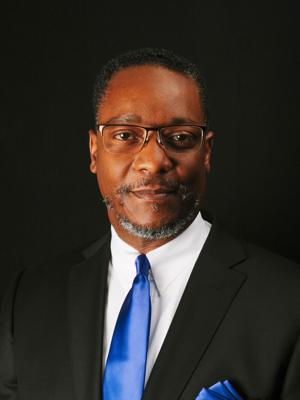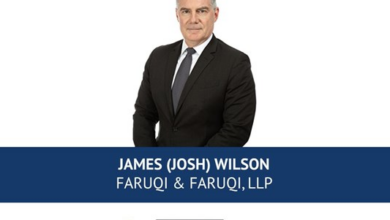Lance Randall wants to be the mayor who puts Seattle back in business

(The Center Square) – No one running for Seattle mayor this year could claim to have as long a resume as Lance Randall, who will tell you his strengths are written on his resume.
Born and raised in Macon, Georgia, Randall’s experience with politics dates back to when he first interned for Maryland state Sen. Gloria Lawlah in 1987 before working under Macon Mayor Lee Robinson and U.S. Rep. Sanford Bishop Jr. some years later. By 1999, Randall became vice president of his hometown’s Chamber of Commerce before leading his consultant firm, L.J. Randall and Associates.
Work brought him to Seattle in 2007 where he served as Business Services Manager for Seattle’s Office of Economic Development until 2015. These days, Randall works as the interim director of SouthEast Effective Development, leading workforce and community development programs in Southeast Seattle.
Randall sees those achievements as reason enough to add Mayor of Seattle to his resume. His work, which spans three mayors, two recessions, and one global pandemic, is what he regards as proof he can do the job and do it well. The next four years, he says, will make or break the struggling businesses at the center of of his campaign.
“The government is going to have to do some different things to make sure that every business is supported, whether it’s a home business or whether it’s a major corporation, in order to get the economy going,” Randall said. “I have the background and a plan to get it done.”
That plan would see the city shop around for small business grants from venture capitalists and credit unions Randall says would share the same sense of urgency as Seattle’s mom and pop shop owners. Those lending programs would be on top of investments into the city’s public and private economic development funds, he adds, and come from those at the top.
In Randall’s book, there are just as many solutions for spreading the wealth around in the private sector as city hall. He is in no hurry to turn Seattle’s tax code on its head, however, and cautions that good governance comes from weighing risk with reward.
“When we talk about tax codes, we have to consider what we’re trying to accomplish,” Randall said. “We have to make sure that when we approach any type of tax, we need to try to strike a balance to make sure that although the tax code is designed to do one thing, we need to make sure that it doesn’t cause another problem.”
Another problem for Seattle, Randall says, is filling the empty retail space left behind by the pandemic. His solution would be bringing the city, the county, and property owners together to create a property tax incentive program reimbursing new landlords for making tenant improvements with free rent.
Market solutions are more elusive for Seattle’s homeless crisis, which Randall says is more urgent than ever. More tents and hotel rooms could all be on the table in the short-term, but Randall says he’s open to the city engaging the homeless without the sirens of a cop car.
“I think that we need to look at every option that we can to try to get people off the streets,” Randall said. “It just breaks my heart when I ride around the city. I think we can help a lot of people and encourage them to help us, help them get out of this situation.”
The Seattle Randall wants to see has plenty of police walking its streets. He also wants to get tough on vandals who he calls “bad actors” who have hijacked the city’s ongoing protests against police brutality and racism.
“Unfortunately, there are a lot of bad actors who saw this as opportunity to infiltrate, or try to discredit this movement,” Randall said. “We have to be more proactive to try to identify these bad actors, when they come to town, trying to try to head off any efforts at any property destruction.”
As for the Seattle Police Department, whose officers are accused of everything from pepper-spraying a child in the face, Randall believes it can build trust with its communities.
“I do understand the anger over what’s been happening for far too long, but it’s going to take quite some time to resolve this matter,” Randall said. “As an African American man, I’ve been a victim of police harassment, and it’s very demeaning. It’s painful. It’s going to take a constant change of culture, constant change of personnel, constant change of the way we police.”
In his own words, Randall supports reforms that keep people alive and holds officers accountable, from enforcing stricter standards for force and keeping heavy duty weapons out of officers’ hands, both of which are being debated by state lawmakers this year.
Reform is a tall order for the Seattle Police Department, which saw some 19,000 complaints of misconduct filed against it since last summer and remains under strict federal court scrutiny as it guards the identifies of six officers accused of invading the U.S. Capitol on Jan. 6.
The issue, according to Randall, boils down having “the right kind of people” to change Seattle’s police culture. Whether those people include Seattle Police Officers Guild President Mike Solan, whose conspiracy-fueled rhetoric have led to calls for his resignation, Randall will not say.
“We got a lot of work to do to come out of this,” Randall said. “But I’m convinced that we’re going to come out and be that beacon light again.”
Seattle voters will mail in their ballots to select their next mayor on November 2.
Disclaimer: This content is distributed by The Center Square

